What is the general sentiment among regional and international HVACR players on how the upcoming World Expo 2020 is shaping the UAE market? Widely considered an ideal stage for showcasing innovative and energy-efficient products, will the event signal a shift in the industry mindset towards the adoption of more sustainable solutions with a long-term view? Hannah Jo Uy investigates…
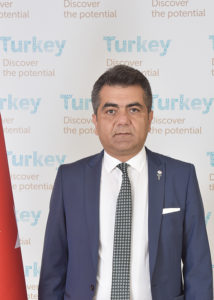
Mehmet Şanal, Chairman, ISIB
The stage is being set for the World Expo 2020, and the UAE, its host country, is once again in the international spotlight. Mehmet Şanal, Chairman, ISIB, says that with the highly anticipated event merely a year away, Dubai is attracting interest from global trade markets. “For a period of six months, starting October 2020, millions of people will visit Dubai,” he says, “which offers invaluable opportunities for all of us.” In this context, Şanal says, companies across various sectors have undertaken measures to position themselves accordingly, in anticipation of the footfall Dubai will have from regional and international visitors.
For Şanal, the Expo underscores the importance the HVACR sector must place in the Middle East market, which he describes as ‘ever open’ to development. “It is of particular importance to make use of the potential in the region and provide the technology of the future,” he says, stressing that it is ISIB’s goal to help Turkish solution providers play a more significant role in the region’s progress.

Zoe Hu, DGM (West Asia and Africa), Chint
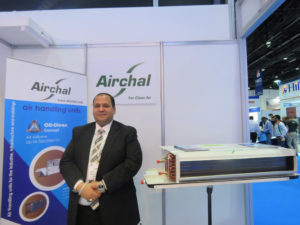
Bassel Abd El-Aziz, Sales Director, Middle East, Airchal Middle
East
Zoe Hu, Deputy General Manager (West Asia and Africa), Chint, speaking from the perspective of Chinese players, also believes the Expo offers a wealth of opportunities in the market, adding that the company is involved in some projects and views the event as ample opportunity to highlight its portfolio, which includes services related to energy and power. Bassel Abd El-Aziz, Sales Director, Middle East, Airchal Middle East, adds that while the Expo is sure to drive the construction market and, subsequently, the service sector, stakeholders have not observed the boost in the market to the extent previously expected.
Viken Ohanesian, Executive Director, Harwal Group, believes the softness in the market only means there is nowhere to go but up. “I don’t see in the next year or two this horrible threat,” he says. “We are in it already, whatever was going to happen – we feel it. I believe 2020 is a stage to bring everybody in and, hopefully, unleash a fury of investment.”
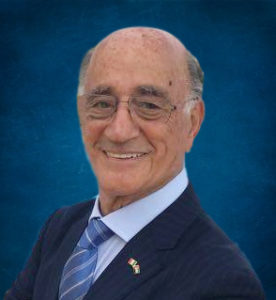
AP Dellapenna, Executive Director, CEO, TSSC
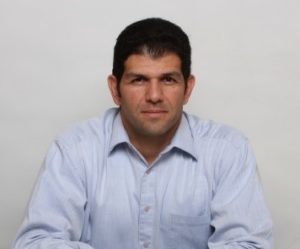
Viken Ohanesian, Executive Director, Harwal Group
Gleaning from the level of participation of the Technical Supplies and Services Company (TSSC) in the Expo, A P Dellapenna, Executive Director – CEO, says the most important thing with regard to securing such projects was to get approved as a vendor, and that those that have been approved can expect good opportunities in the pipeline. TSSC, he says, is associated with companies that have been awarded the construction of the pavilions.
Ohanesian believes that the Expo is set to boost the population of the UAE, which will serve as a catalyst for new growth trends on the consumer side, impacting food and retail. This, he says, in turn will lead to an uptake in demand for farms, warehousing and logistics. “We are looking at first the infrastructure build and then the actual growth in population to take it to the next level,” he says. “Hopefully, it pans out that way.”
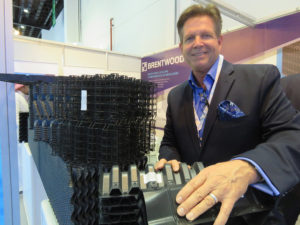
Gene Rudolph, Senior Vice President, Cooling Tower, Brentwood
Gene Rudolph, Senior Vice President, Cooling Tower, Brentwood, says that growth in demand for such solutions aligns with the region’s efforts to move away from being an oil- and gas-dominated economy.
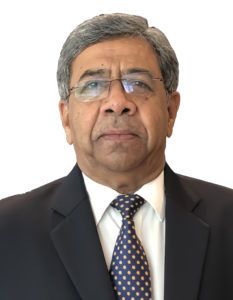
Kishore Deotarase, GM – Sales, Unigulf
Though overall demand is expected, how much attention is being given to the quality of the equipment to be installed? Are Expo-related projects stumbling under the same challenges facing other developments, such as the pressure of deadlines and cost-centric thinking? Taking on an optimistic view in this regard is Kishore Deotarase, General Manager – Sales, Unigulf, who says that though payment delays can be a challenge in current market conditions, he believes there will be no compromise on the quality of equipment going into Expo developments from project managers and consultants involved – even with jobs that have to be handed over by the end of the year. Deotarase says stakeholders are being driven to “come up with something innovative, eye catching and also technically impressive”. He adds: “Their names are also at stake. They make sure projects have real quality, not only aesthetics.” This, he says, is largely driven by stiff competition in the market, stressing that stringent measures ensuring quality and efficiency can be expected from such projects of significant value, size and appeal.
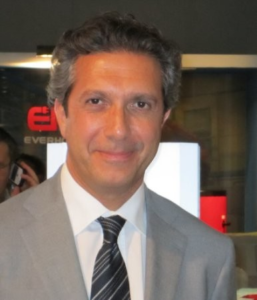
Nazar Shahinian, VP-Business Development, Harwal Group
Nazar Shahinian, VP-Business Development, Harwal Group, says that when it comes to aesthetics and structure, in-house engineering teams and know-how pave the way for creative solutions for the building envelop, which can address energy efficiency and fire and life safety requirements. Ohanesian adds: “They are not mutually exclusive. If you want an aesthetically appealing and functioning product, it doesn’t mean it has to be very expensive. We can value-engineer a solution, bring manufacturing, contracting and design all together and decide what is needed.”
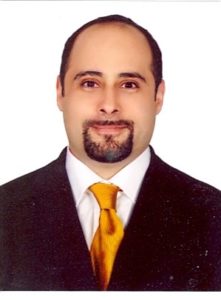
Miro Donabedian, General Manager, TSSC
Miro Donabedian, General Manager, TSSC, adds that such an approach allows companies to pass the saving to the client for turnkey solutions. Donabedian believes the same measures extend to cold chain, elaborating on the existing solutions to ensure food safety and temperature control of critical products such as pharmaceutical items through the integration of smart features for closer monitoring.
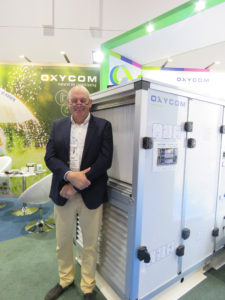
Hans Reinders, CEO, Oxycom
Dellapenna says ‘smart’ is the general direction the market is taking and that while there are limits when it comes to adoption of quality solutions, modern and effective products always find the right audience. “Dubai is the place of new solutions,” he says. “We test, then it spreads all over the world.”
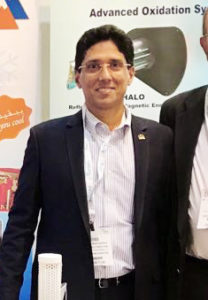
Liju Thomas Eapen, Managing Director, Al Arif A/C
Hans Reinders, CEO, Oxycom, says that as such, the event is an ideal platform to promote a shift in industry mindset and move the dial towards greater adoption of green technologies. “The World Bank report said indirect evaporative cooling will have a future in the HVAC industry,” he says. “Now, with EXPO 2020, what a chance that would be to show that there are great solutions for reducing energy and getting healthier indoor air quality in the buildings! It would be a great way to educate the market.”
Liju Thomas Eapen, Managing Director, Al Arif A/C, believes that this kind of education should be the most important legacy of the Expo. “You can’t just think of Expo 2020,” he says, “because it is very close. There has to be life and sustainability after Expo 2020. There will be things which I believe the government will do to encourage the people to come, stay here, invest in and grow with this country.”
Hannah Jo Uy is Assistant Editor at Climate Control Middle East magazine. She may be contacted at hannah@cpi-industry.com
Copyright © 2006-2025 - CPI Industry. All rights reserved.